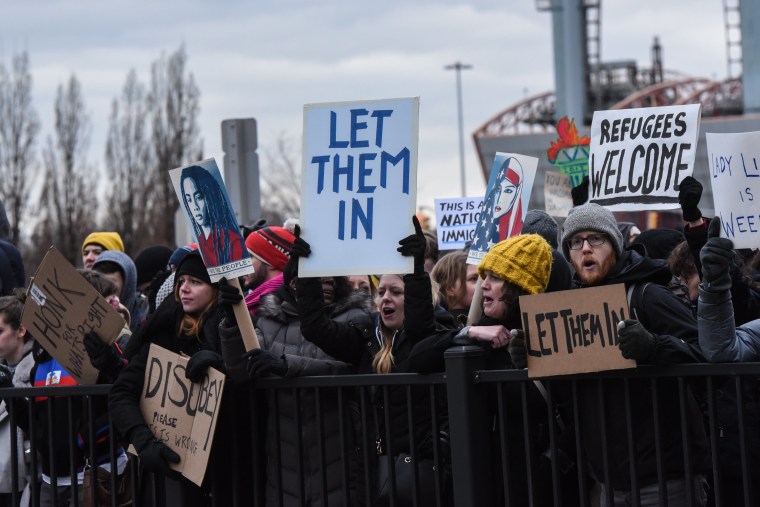GREENBELT, Md. — Three national resettlement agencies are asking a federal judge in Maryland to block a presidential executive order allowing state and local governments to turn away refugees.
U.S. District Judge Peter Messitte is scheduled to hear arguments Wednesday on the agencies’ request for a preliminary injunction stopping the Trump administration from enforcing the order.
Agency attorneys say the administration announced in November that the faith-based nonprofits must get written consent from state and local officials in any jurisdiction where they want to help resettle refugees beyond June 2020.
Church World Service, Lutheran Immigration and Refugee Service and HIAS — a Jewish nonprofit — filed the lawsuit in Greenbelt, Maryland, on Nov. 21. They are three of the nine national organizations agencies that have agreements with the federal government to provide housing and other services for refugees.
Before Trump signed the executive order, state and local officials were “given a voice but not a veto in where refugees would be resettled,” agency lawyers wrote in a court filing.
The agencies argue the order illegally conflicts with the Refugee Act.
“The Refugee Act does not permit state or local governments to bar refugees from resettling in their jurisdictions entirely. Indeed, Congress considered and specifically rejected the possibility that the executive could delegate these delicate decisions to state and local officials,” agency attorneys wrote.
Justice Department attorneys say the executive order requires “enhanced consultation” with state and local officials but doesn’t give them a “veto” over resettlement decisions.
“To the contrary, although defendants require additional consultation with states and localities, the ultimate resettlement decision rests squarely with the federal government,” government attorneys wrote.
Trump’s order says the agencies were not working closely enough with local officials on resettling refugees and that his administration acted to respect communities that believe they do not have the jobs or other resources to be able to take in refugees. Refugees have the right to move anywhere in the United States after their initial resettlement, but at their own expense.

